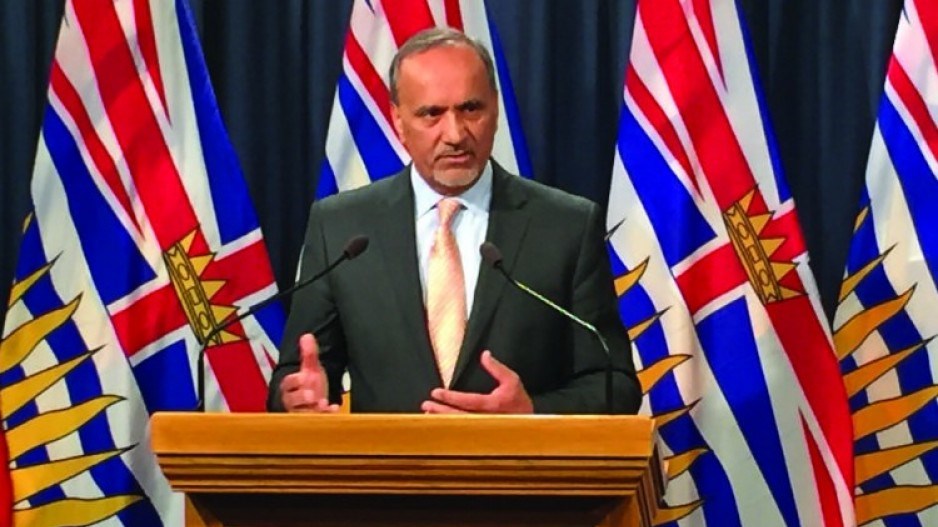A 6.9 per cent minimum wage hike mandated by the B.C. government is “unsustainable” for some businesses, when stacked on all other costs downloaded onto business, say a number of business groups.
As of June 1, the B.C. government is raising the minimum wage from $15.65 to $16.75 per hour.
"Having a minimum wage that keeps up with inflation is a key step to prevent the lowest paid workers from falling behind," Harry Bains, B.C.’s minister of Labour, announced today. "These workers and their families feel the impacts of high costs much more than anyone else. We are maintaining our policy of tying the minimum wage to inflation."
But the 6.9 per cent increase actually exceeds inflation, according to the Surrey Board of Trade, which pointed out the consumer price index is 6.2 per cent for B.C. and 5.2 per cent for Canada.
“The Surrey Board of Trade is disappointed that such a significant minimum wage increase was announced today, leading to further unsustainable cost increases for businesses,” said Surrey Board of Trade CEO Anita Huberman.
“Such a significant increase in minimum wage should have been discussed last year with the business community, especially in the face of other unprecedented increases in taxes and fees from other levels of government.”
“The BC Chamber of Commerce is extremely disappointed with the government’s decision to increase the minimum wage by such a significant amount," said BC Chamber of Commerce president Fiona Famulak. "This decision is the wrong choice, at the wrong time."
“B.C. small businesses are feeling the pinch of inflationary pressures, on top of other cost increases from governments,” said the Canadian Federation of Independent Business (CFIB).
“The 6.9% increase to the minimum wage effective June 1 puts small businesses in a difficult position because they don’t have the ability to absorb higher costs. In addition, over half of the province's small businesses are still experiencing below-normal sales and are carrying an average of $85,000 in pandemic-related debt.
“Cost pressures from the government are at an all-time high, including employer-paid sick days, the Employer Health Tax, WorkSafeBC premiums, skyrocketing property taxes, rising carbon taxes, and a new statutory holiday. This new 6.9% increase for a small business with 10 minimum wage employees will add nearly $20,000 of additional payroll costs.”
“A 6.9% increase to labour costs is a large burden with less than 60 days notice,” said Shaena Furlong, CEO of the Richmond Chamber of Commerce. “Most employers I speak to are in favour of regular increases to the minimum wage, but more time and a graduated approach would help them adjust accordingly.
“When we aggressively layer costs onto employers, we don’t only risk losing their tax contribution, but also the local jobs they create, and the vibrancy they add to our communities.
"In Metro Vancouver, most of us know someone who moved out of the region or the province because they realized they could get more for less elsewhere. Unfortunately, at some point businesses make that same calculation. We urge the province to not only provide more notice for updates to the to the minimum wage but also offset these added costs through any means at their disposal.”




